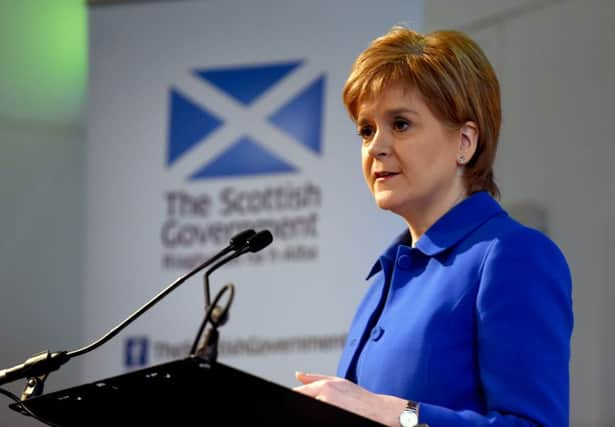Council tax reforms 'fall short of proportionate system'


While the Government’s plans to increase payments for those living in more expensive homes would make the current system more proportionate, they fall short of making the council tax a “proportionate” tax, the briefing from the Scottish Parliament’s Information Centre (Spice) said.
Nicola Sturgeon revealed earlier this month that higher charges are to be brought in for those living in properties from Band E through to Band H.
Advertisement
Hide AdAdvertisement
Hide AdThe changes will cost households in Band H properties an average of £517 a year, the Government estimated.
Those living in Band G properties will see payments increase by an average of £335, with rises of £207 a year for those in Band F homes, and £105 for Band E properties.
Opposition parties said the First Minister was “tinkering round the edges” rather than proposing real reform.
The Government published its plans after a report from the Commission on Local Tax Reform concluded the present system must be changed.
Although it did not recommend a specific course of action, it posed possible alternatives including a reformed proportionate council tax where the charge for each band would be changed to reflect differences in relative property values in each band.
Under the Commission’s alternative, those in Bands A-C would pay significantly less than under the current system or the Government’s proposals, the Spice report found.
Those in Bands E to H would pay considerably more, especially those in Band H.
The report states: “The Commission concluded that, ‘to achieve proportionality would require the tax on the highest value homes to be 15 times the tax on the lowest value homes’.
Advertisement
Hide AdAdvertisement
Hide Ad“Using this methodology, this would appear to indicate that, while the Government’s proposals make the council tax more proportionate than the present system, they fall short of making the council tax a ‘proportionate’ tax.
“Therefore, if the reformed council tax is not ‘progressive’, or even ‘proportionate’, then even if the proposed changes make it less regressive, then it would still be termed ‘regressive’ using this methodology.”
The Government has proposed that some 54,000 low-income households who are living in Band E to H homes will be entitled to an exemption through the council tax reduction scheme.
In addition, it plans to end the council tax freeze from April next year, allowing councils to increase the charge by a maximum of 3% a year.
It will also consult with councils on the possibility of swapping a fixed share of their grant for a proportion of funds raised by income tax.
The Spice report found there was “very little detail” on how the exemption will operate in practice, and that providing a proportion of income tax to councils would “take some time to implement”, and “given disparity in income tax receipts between local authority areas, it is likely an equalisation system would need to be introduced”.